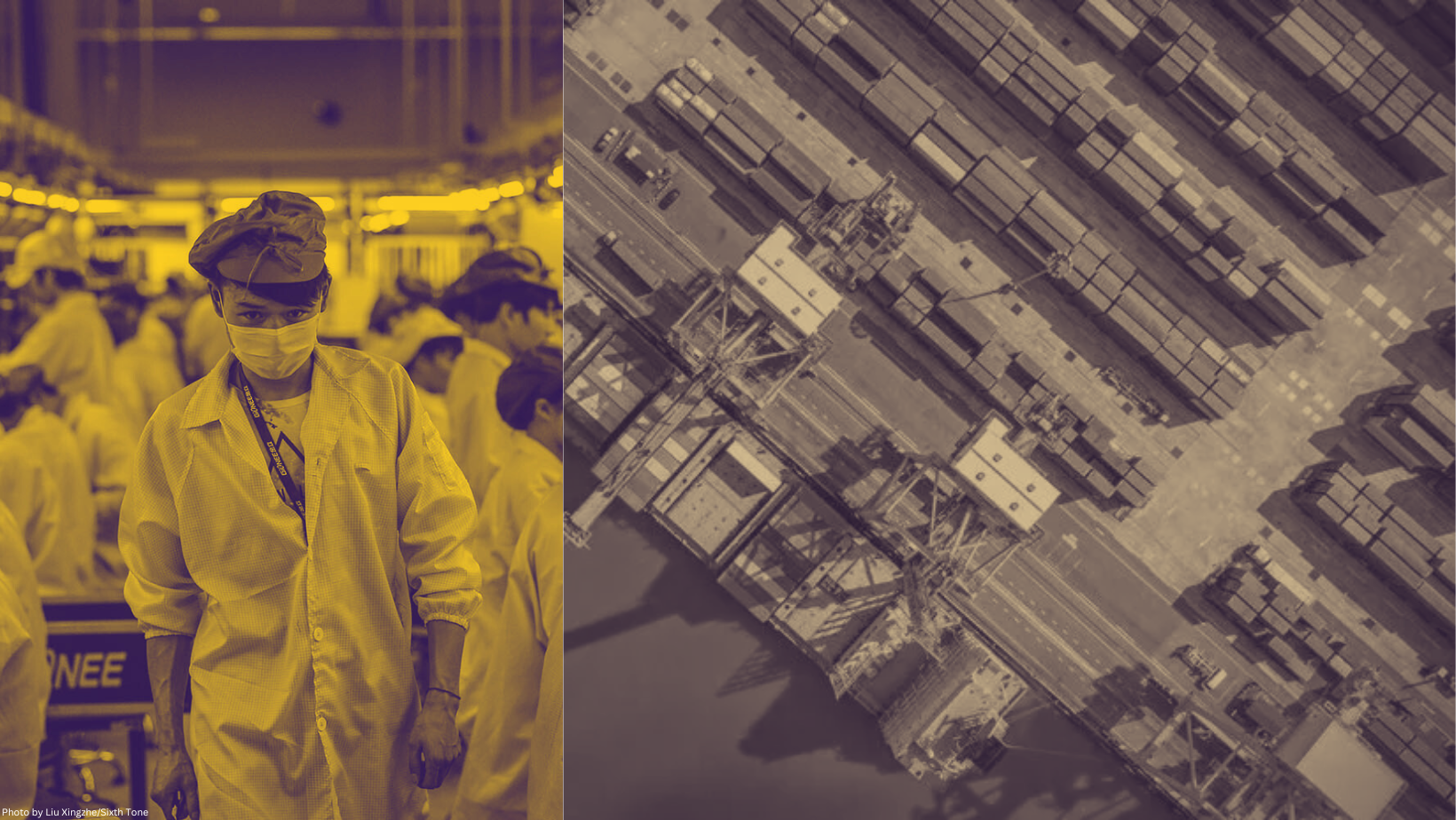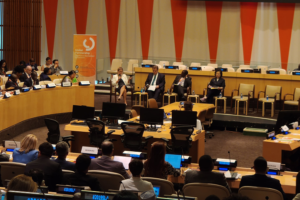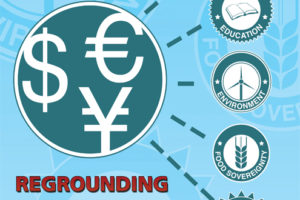IPEF Update No. 2
More than a year after the United States’ (US) Biden administration announced the launch of the Indo-Pacific Economic Framework for Prosperity (IPEF) in May 2022, the US and 13 other negotiating parties reached substantial agreement on the framework’s Pillar II (Supply Chains). Announced during the IPEF ministerial meeting at the sidelines of the Asia-Pacific Economic Cooperation (APEC) Second Senior Officials’ Meeting in Detroit, USA, the IPEF Supply Chain Agreement (SCA) ostensibly aims at enhancing supply chain resilience in IPEF countries, improving their response to crises, and promoting labour rights.
The trade disruptions caused by the coronavirus pandemic and the Russian invasion of Ukraine have led to a rethinking in policy conversations governing supply chain management. Resilience is the order of the day, as firms are encouraged to “future-proof” critical sectors from disruptions coming from pandemics, great power conflict, climate change, and economic uncertainties.
One Asian Development Bank report defines resilience as the ability to “anticipate and prepare for severe disruptions in a way that maximizes capacity to absorb shocks, adapt to new realities, and reestablish optimized operations in the shortest possible time.” Ways to “de-risk” production strategies involve extensive mapping of supply chains to identify vulnerabilities, diversification to lessen dependence on risky sources, building up safety stock, relocating production, and development of new products and process innovations (including cutting out the human factor through automation).
According to the press statement released by the US Department of Commerce on Saturday, the IPEF SCA would be the first multilateral agreement of its kind, seeking to provide a framework for managing risks in identified sectors critical to “national security, public health and safety, or the prevention of significant or widespread economic disruptions.”
To this end, the proposed Agreement would establish three bodies under this pillar:
- IPEF Supply Chain Council, a mechanism for developing plans to enhance resilience in critical sectors and key goods
- IPEF Supply Chain Crisis Response Network, which would be an emergency communications channel for support and information-sharing during disruptions or crises
- IPEF Labor Rights Advisory Board, a tripartite body to support promotion of labour rights in supply chains
Resilience for whom? Supply chains as the backbone of contemporary global capitalism
Despite the lofty rhetoric of the Biden administration’s worker-centric trade policy, the experience of pursuing the resilience agenda in the last few years has seen worsening labour exploitation and capital concentration. Global supply chains, after all, “represent the integrative structure of contemporary global capitalism,” with top corporations exerting control over various aspects of production throughout the chain and garnering superprofits at the expense of supplier firms and workers. As they are mostly based in developed countries, integration into these production networks facilitate the transfer of value and resources from the global South to the global North.
In the first place, capacity to pursue the IPEF resilience agenda largely rests with large corporations which are often the only ones who can bear the costs for crucial activities such as supply chain mapping. Moreover, lead firms derive their power over suppliers from their monopoly over information critical to supply chain management.
Workers bore the brunt of the resilience agenda of preventing disruptions in production during the pandemic, as working conditions deteriorated and labour’s income share declined in many countries. Pandemic-related lockdowns saw factory workers, now seen as “essential”, forced to stay in their workplaces, exposed to the virus and unable to go home for prolonged periods of time. Migrant workers in critical sectors were particularly vulnerable, with many reported instances of labour rights violations. White-collar workers who were made to work from home were subjected to intrusive surveillance software and algorithmic management.
“We require more minerals”: US industrial policy and securing supply chains in the Asia-Pacific
More than anything, it is the US’ security interests that are driving the resilience agenda in IPEF. Couched in the language of national security, the 2021 White House report on building resilient supply chains specifically anticipates conflict with China as the impetus for securing US supply chains in sectors critical to their military industrial base and green industrial policy. These sectors include semiconductors, rare-earth minerals for telecommunications and other electronics, active pharmaceutical ingredients, essential antibiotics, and key battery inputs for military hardware, clean energy technologies, and electronic vehicle (EV) manufacturing such as cobalt, lithium, nickel, manganese, and graphite.
Most concerningly for the US, China refines 80% of the world’s lithium and 60% of the world’s cobalt, and produces over two-thirds for graphite and rare earth metals. Demand for these mineral resources is expected to soar severalfold as the world strives to shift to clean energy in the coming decades.
Coupled with the successful use of industrial policy in the case of China’s growing EV manufacturing industry, these supply chain vulnerabilities are revealing the cracks in the economic orthodoxy of neoliberal globalisation that the US has promoted abroad for decades. 2022 saw sweeping industrial policy measures in the US, with hundreds of billions of dollars’ worth of subsidies in the form of tax credits to domestic producers provided for in the Inflation Reduction Act (IRA) and the CHIPS (“Creating Helpful Incentives to Produce Semiconductors”) and Science Act. Both laws seek to encourage development of green technologies and semiconductor production, respectively.
These measures have notably come under fire from both China and the European Union (EU) during the US’ trade policy review at the World Trade Organization (WTO) in December last year. The two accused the US of violating WTO obligations of non-discrimination by unduly favouring their domestic sectors. China also criticised the US’ abuse of national security exemptions in pursuing a host of industrial policy measures to maintain “absolute technological leadership”, among others.
In response to these measures, several US trade partners like Japan, South Korea, Australia, the EU, Argentina, Canada, and the UK have been signing on to critical minerals agreements and partnerships to avail of the EV tax credits under the IRA. Indonesia, Malaysia, and the Philippines are similarly pursuing to have similar provisions for critical minerals under IPEF.
However, the scramble for critical mineral supply chains does not come without social and environmental costs, especially in the communities directly affected by the expansion of extractive industries. Reports of labour exploitation, hazardous working conditions, degradation of landscapes and bodies of water, health issues and loss of livelihood in impacted communities, corporate tax avoidance, and other injustices hound mining activities in Indonesia, the Philippines, and many other countries in the global South. As dominant policy norms allow corporate impunity for rights impacts and violations, communities and working peoples are being deprived of their right over their resources and control over their economic life.
Furthermore, without effective intervention, the export orientation of extractive industries in developing countries may lead to being trapped in the bottom rung of mineral value chains as suppliers of raw ore. This dependence on mineral and other commodity exports is associated with chronic underdevelopment, negative terms of trade, vulnerability to price shocks, political instability, corruption, and is inconsistent with the imperatives of ecological sustainability and social justice. Without mineral processing capabilities, tax cuts and other liberalising measures will only serve to support the industrialisation of other countries, while severely impairing Southern states’ capacity to use taxation as a means to promote development, equity, and wealth redistribution.
People’s resistance
In response to the threats and impacts of IPEF, social movements have since been organising various forms of showing resistance. Last May progressive organisations in the US, including the International League of Peoples’ Struggle-US (ILPS-US) and BAYAN USA, conducted workshops and protest actions in Detroit to demand prioritising labour, climate justice, and human rights over corporate profits in Indo-Pacific trade talks. Trade justice activists slammed the lack of transparency in the negotiation process. Not even the current text of the recently concluded Supply Chain Agreement is available.
US corporations, however, enjoy privileged access to negotiating texts, with provisions on “digital trade” being pushed to entrench corporate power at the expense of working peoples in the region.
On the same day, people’s movements in the Philippines also sent messages of solidarity to the actions in Detroit and with the struggles of workers and peasants in the region for a People’s Trade Agenda that truly puts people and planet before corporate profits. #



